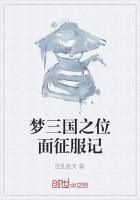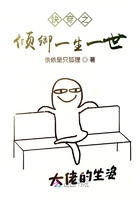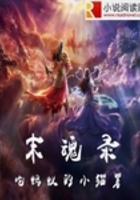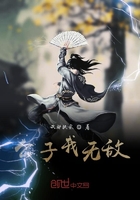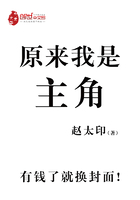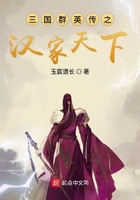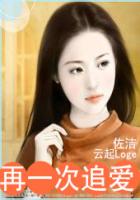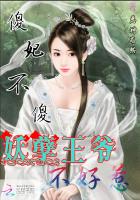The death of renowned painter Wu Guanzhong at the age of 91 sees the
passing of one of China’s last great artists.
By Yu Guangren and Yang Shiyang
Wu Guanzhong’s reputation as a master painter extended far beyond the Chinese mainland, with his works selling for vast sums of money at auction all over the world even before his death from heart failure on June 25.
Wu’s terse and sprightly style was honed through years of painstaking experimentation blending elements of Chinese freehand brushwork with Western expressionism, and the tranquil and poetic beauty of traditional Chinese painting glimmered through even his most avant garde canvases.
Seen as a patriotic, outspoken, and innovative artist, Wu was a passionate exponent of expression and creative freedom, claiming that China was stifling creativity by over-administering art and attempting to manage artists.
True Words
Indifferent to fame and wealth throughout his life, Wu spent his twilight years with his wife in a two-bedroom apartment in a typical Beijing compound, despite the six-figure price tags attached to his works. To many of his neighbors, he was simply “the old man who paints.” Many of them were surprised to find Wu’s picture gracing newspapers alongside plaudits acknowledging him as a “master” the day after he passed away.
Despite a low public profile, Wu was long esteemed in Chinese art circles as one of the few pioneering painters working on the Chinese mainland. His massive marketability was evidence of his reputation. In May 2007, one of his paintings, Ancient City of Jiaohe, sold for 40.7 million yuan (US5.9 million) at the Poly Auction in Beijing, a record price for a work by a living Chinese artist.
However, during interview, Wu spoke little about himself and his art. Instead, he surprised people with tirades against the country’s administrative systems for art and culture. He equated State-sponsored art administration bureaus with feudal courts, and called administrators “Draconian bureaucrats.” State-sponsored artists working in such bureaus were dubbed “hens that lay no eggs,” and branded backdoor dealings on the domestic art market “simple prostitution.”
In an interview with the influential Southern Weekly, he said, “I don’t have many days left. So I want to speak the truth while I can still talk.”
Homecoming
Born in 1919, Wu began his art studies at the National Arts Academy in Hangzhou when he was 17 years old. The president of the academy was Lin Fengmian, a recognized master of both Chinese ink-and-wash and Western oil painting. Lin learned the fundamentals of art in France in the early 1920s and is seen by many as the father of modern art in China.
Wu trained in traditional Chinese ink-and-wash painting, and was clealy influenced by Lin’s idea of combining Western styles with traditional Chinese technique. Wu found himself particularly drawn to the post-impressionist painters Van Gogh, Gauguin and Cézanne.
Wu won a scholarship in 1946 to the prestigious école Nationale Supérieure des Beaux-Arts in Paris to study art. In 1950, one year after the founding of the People’s Republic of China, Wu had a tough decision to make – to return to his native country or continue his studies in France. He finally made up his mind to return, feeling his artistic roots lay in China. He later recalled, “Weren’t Van Gogh, Gauguin and Cézanne my role models? They all eventually left Paris for their native places or remote hermitages. Why? Because, in Paris, they felt cut off from real life, the fount of inspiration.”
However, when Wu took a teaching job in the Central Academy of Fine Arts (CAFA) in Beijing, he found post-impressionism and formal beauty to be out of favor with the mainstream artists such as Xu Beihong, dean of the CAFA, and the most influential Chinese painter of his time. Instead, the leftist faculty worshiped 19th century Russian realism represented by Ilya Yafimovich Repin.
To his disappointment, Wu found most of his students to be exclusively interested in realism. He showed them Western modernist paintings and tried to encourage them to show their individuality in their works. However, few paid attention, as there was little to be gained in Mao’s China by opposing the mainstream. Wu found himself artistically and politically out of place.
Only one year later, a rectification movement in the art scene branded formalism as “capitalistic art theory.” Wu was labeled “a bastion of bourgeois formalism.” During one faculty meeting at the CAFA, Xu Beihong said, “Naturalism is a hooligan which must be beaten down. Formalism is a villain which should be eliminated.” Wu found himself caught in a very difficult situation. Years later, while recalling his time at the CAFA, he called the place an “arena for leftism.”
In 1953, Wu was transferred to the Department of Architecture of Tsinghua University in 1953 to teach the architecture students sketch and water color, tantamount to exile from China’s art scene which, at the time, consisted solely of CAFA. “Now it was simple, all I had to do was teach drawing techniques which had little to do with thought,” he later recalled.
Tsinghua gave Wu a chance to escape from the politics of the CAFA, and led him to switch to landscape painting, a genre in which he would later excel. He considered landscape painting a politically safe zone, since Zhou Yang, the then vice minister of the Propaganda Department of the Central Committee of the Chinese Communist Party, once said publicly, “Landscape painting does no harm.”
Three years later, Wu was transferred to the Beijing Fine Arts College (BFAC) as an art teacher. He traveled to Jinggang mountain, an early base for the Chinese Red Army and the “cradle of the Chinese revolution,” on sketching tours. With such tours politically justified, Wu continued his pursuit of formal beauty. It was during this period of time that he began to distinguish himself as a landscape painter. Later, he and a group of artists went to Tibet on a tour sponsored by the Chinese Artists Association. This tour yielded his early masterpiece Tashilhunpo Monastery.







